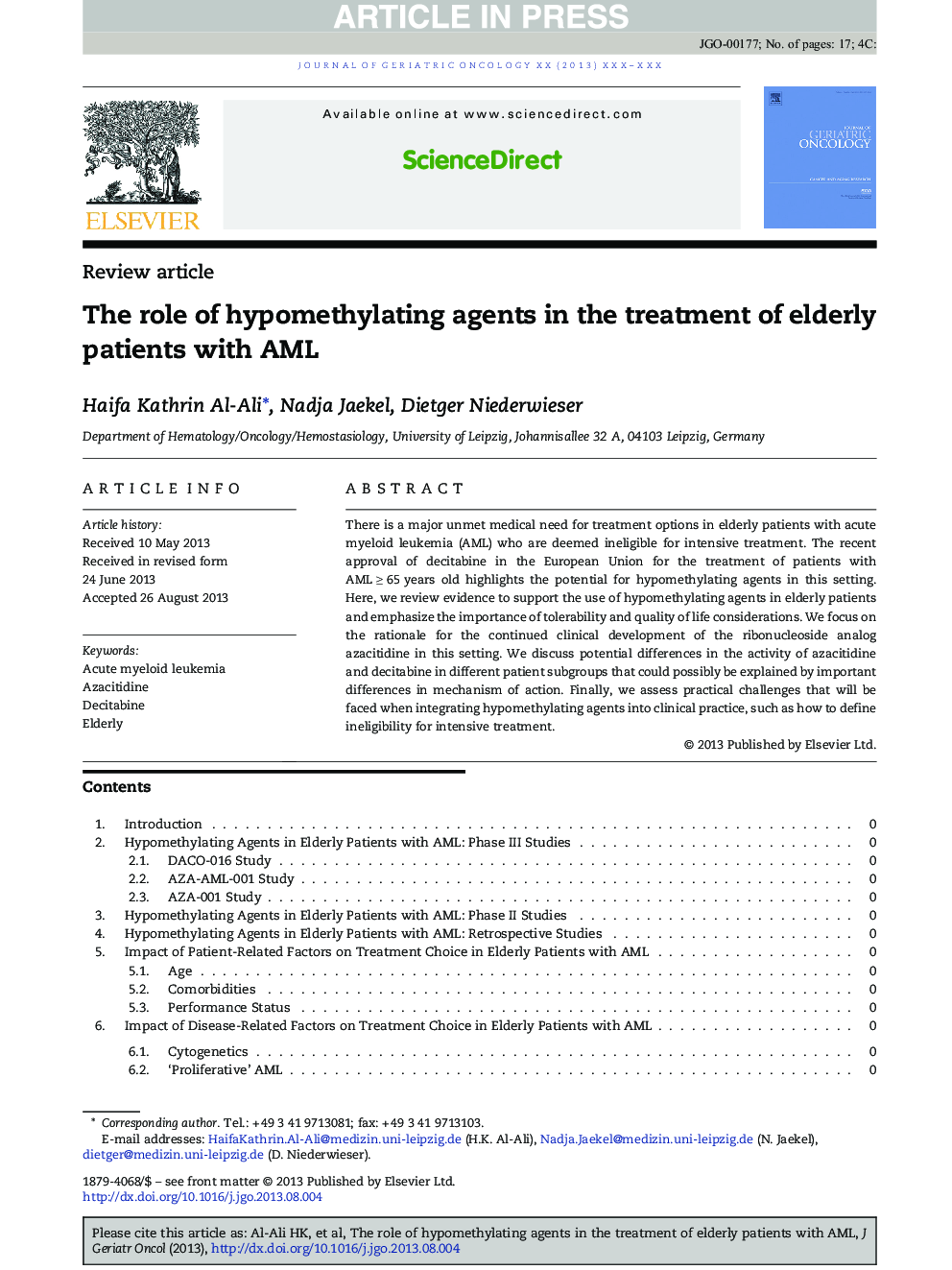| Article ID | Journal | Published Year | Pages | File Type |
|---|---|---|---|---|
| 10742399 | Journal of Geriatric Oncology | 2014 | 17 Pages |
Abstract
There is a major unmet medical need for treatment options in elderly patients with acute myeloid leukemia (AML) who are deemed ineligible for intensive treatment. The recent approval of decitabine in the European Union for the treatment of patients with AML â¥Â 65 years old highlights the potential for hypomethylating agents in this setting. Here, we review evidence to support the use of hypomethylating agents in elderly patients and emphasize the importance of tolerability and quality of life considerations. We focus on the rationale for the continued clinical development of the ribonucleoside analog azacitidine in this setting. We discuss potential differences in the activity of azacitidine and decitabine in different patient subgroups that could possibly be explained by important differences in mechanism of action. Finally, we assess practical challenges that will be faced when integrating hypomethylating agents into clinical practice, such as how to define ineligibility for intensive treatment.
Related Topics
Life Sciences
Biochemistry, Genetics and Molecular Biology
Ageing
Authors
Haifa Kathrin Al-Ali, Nadja Jaekel, Dietger Niederwieser,
